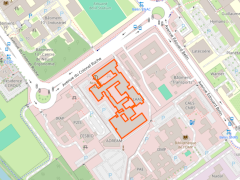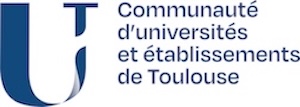Department do
Decision and Optimization
The "Decision and Optimization" department develops theoretical and methodological contributions for the design of mathematical laws and algorithmic techniques dedicated to control and decision problems.
head
The department develops theory and methods for Decision and Optimization. The produced results are of mathematical and algorithmic type. Results are tested and validated on various classes of Applications. Two complementary approches associating Decisions (Dec) and Optimization (Opt) coexistent within the department:
- [Dec->Opt] Analysis and design of Decision laws using, among others, optimization techniques;
- [Opt->Dec] Modeling, design and resolution of Optimization problems, used, among others, for decision taking.
The signals and data defining the inputs and outputs of the systems and algorithms are, depending on the studied cases:
- of continuous nature (Cont), typically non-bounded, real-valued;
- of discrete nature (Disc), typically bounded discrete, integers, or defined by an alphabet.
One of the complications considered widely in the scientific contributions of the DO members is heterogeneity (H), among which the heterogeneity coming for associating signals and data having both continuous and discrete nature. Depending on which team is considered the dominant view point is either:
- [Disc->H] The main theoretical and methodological corpus is dedicated to discrete data or decisions with perspectives to include continuous nature elements such as continuous systems, processes and algorithms;
- [Cont->H] The main theoretical and methodological corpus is dedicated to continuous processes and data, with perspectives to solve problems including discrete complications such as quantification and hybrid time.
The list below positions the four teams with respect to these approaches and view points. For each team the items summarize their mail key-words in terms of the considered types of Decisions, Optimisation methods and tools, and Application.
DISCO [Dec->Opt] [Disc->H]
- Décision : diagnostic, supervision, pronostic
- Optimisation : apprentissage, combinatoire, convexe
- Applications : industrie du futur, santé, énergie, aérospatial, agriculture
MAC [Dec->Opt] [Cont->H]
- Décision : commande, observateurs, contrôle
- Optimisation : convexe, LMI, hiérarchies, certificats
- Applications : aérospatial, convertisseurs électriques, robots, santé-biotechnologie
POP [Opt->Dec] [Cont->H]
- Optimisation : convexe, semi-définie, polynomiale, hiérarchies moments-sommes de carrés, tropicale
- Décision : certificats, commande, apprentissage
- Applications : réseaux électriques, quantique, réseaux de neurones
ROC [Opt->Dec] [Disc->H]
- Optimisation : combinatoire, sous contraintes, hybrides
- Décision : ordonnancement, planification, apprentissage
- Applications : transport, industrie du futur, spatial, énergie
Recherche internationale
Le département DO pratique sa recherche en favorisant les coopérations nationales et internationales. En témoigne les indicateurs de rayonnement des équipes (DISCO, MAC, POP, ROC) mais également le grand nombre de de doctorants et chercheurs temporaires étrangers accueillis au sein du département.
En 2021 le département a souhaité mettre en avant les collègues effectuant leurs recherche dans des établissements à l'étranger et qui collaborent activement avec les membres de DO. Sous le terme de DO-LAAS Research Fellows nous célébrons ceux qui ont effectué un séjour au LAAS-CNRS au cours des 5 années précédentes et ont co-signé des productions scientifiques avec des membres du département. Les noms sont proposés par les collègues du département, approuvés par le conseil scientifique et nommés par le directeur du département.
2023 DO-LAAS Research Fellows
- Alessandro Agnetis - Università degli Studi di Siena, Italia
- Philipp Braun - Australian National University, Australia
- Andrea Cristofaro - Sapienza Università di Roma, Italia
- Emir Demirovic - TU Delft, Koninkrijk der Nederlanden
- Yoshio Ebihara - Kyushu University, 日本
- Francesco Ferrante - University of Perugia, Italia
- Sebastien Gambs - Université du Québec à Montréal, Canada
- Rafal Goebel - Loyola University Chicago, USA
- João Manoel Gomez da Silva Jr. - Universidade Federal do Rio Grande do Sul, República Federativa do Brasil
- Yohei Hosoe - Kyoto University, 日本
- Igor Klep - Univerza v Ljubljani, Slovenija
- Martin Kružík - Czech Academy of Sciences, Prague, Česko
- Valter Leite - U CEFET Divinopolis, República Federativa do Brasil
- Axel Osses - Universidad de Chile, Chile
- Gustavo Perez-Zuniga - Pontificia Universidad Católica del Perú, Perú
- Claude-Guy Quimper - Université Laval Québec, Canada
- Alexandre Seuret - Universidad de Sevilla, España
- Javier Sotomayor - Pontificia Universidad Católica del Perú, Perú
- Anna Sztyber-Betley - Politechnika Warszawska IAiR, Polska
- Jie Wang - Chinese Academy of Sciences, Beijing, 中华人民共和国
2021 DO-LAAS Research Fellows
- Alessandro Agnetis - Università di Siena, Italia
- Jose Aguilar - Universidad de Los Andes, Venezuela & Universidad de Alcala, España & Universidad EAFIT, Columbia
- Carolina Albea Sanchez - Universidad de Sevilla, España
- Philipp Braun - Australian National University, Australia
- Yoshio Ebihara - Kyushu University, 日本
- João Manoel Gomez da Silva Jr. - Universidade Federal do Rio Grande do Sul, República Federativa do Brasil
- Alban Grastien - Australian National University, Australia
- Yohei Hosoe - Kyoto University, 日本
- Hiroyuki Ichihara - Meiji University, 日本
- Zetao Li - Electrical Engineering College of Guizhou University, 中华人民共和国
- Luis Martinez Salamero - Universitat Rovira i Virgili, España
- Claude-Guy Quimper - Université Laval, Quebec, Canada
- Masayuki Sato - JAXA, 日本
- Premysl Sucha - České vysoké učení technické v Praze, Česká republika
International cooperation
The DO department cherishes international cooperation. It is attested by the reputation indicators of the teams (DISCO, MAC, POP, ROC) and also by the many foreign PhD students and temporary researchers hosted in the department.
Staring from 2021 the DO-LAAS department (Decision and Optimization) acknowledges fellow colleagues from abroad who collaborate closely with members of the department. The eligible colleagues should be members of research institutions in a foreign country, should have visited or stayed at LAAS in Toulouse in the previous five years, and have co-signed scientific results with DO-LAAS members. Nominations are made by DO-LAAS members. The DO-LAAS scientific council validates and the head of the department appoints the DO-LAAS Research Fellows.
2023 DO-LAAS Research Fellows
- Alessandro Agnetis - Università degli Studi di Siena, Italia
- Philipp Braun - Australian National University, Australia
- Andrea Cristofaro - Sapienza Università di Roma, Italia
- Emir Demirovic - TU Delft, Koninkrijk der Nederlanden
- Yoshio Ebihara - Kyushu University, 日本
- Francesco Ferrante - University of Perugia, Italia
- Sebastien Gambs - Université du Québec à Montréal, Canada
- Rafal Goebel - Loyola University Chicago, USA
- João Manoel Gomez da Silva Jr. - Universidade Federal do Rio Grande do Sul, República Federativa do Brasil
- Yohei Hosoe - Kyoto University, 日本
- Igor Klep - Univerza v Ljubljani, Slovenija
- Martin Kružík - Czech Academy of Sciences, Prague, Česko
- Valter Leite - U CEFET Divinopolis, República Federativa do Brasil
- Axel Osses - Universidad de Chile, Chile
- Gustavo Perez-Zuniga - Pontificia Universidad Católica del Perú, Perú
- Claude-Guy Quimper - Université Laval Québec, Canada
- Alexandre Seuret - Universidad de Sevilla, España
- Javier Sotomayor - Pontificia Universidad Católica del Perú, Perú
- Anna Sztyber-Betley - Politechnika Warszawska IAiR, Polska
- Jie Wang - Chinese Academy of Sciences, Beijing, 中华人民共和国
2021 DO-LAAS Research Fellows
- Alessandro Agnetis - Università di Siena, Italia
- Jose Aguilar - Universidad de Los Andes, Venezuela & Universidad de Alcala, España & Universidad EAFIT, Columbia
- Carolina Albea Sanchez - Universidad de Sevilla, España
- Philipp Braun - Australian National University, Australia
- Yoshio Ebihara - Kyushu University, 日本
- João Manoel Gomez da Silva Jr. - Universidade Federal do Rio Grande do Sul, República Federativa do Brasil
- Alban Grastien - Australian National University, Australia
- Yohei Hosoe - Kyoto University, 日本
- Hiroyuki Ichihara - Meiji University, 日本
- Zetao Li - Electrical Engineering College of Guizhou University, 中华人民共和国
- Luis Martinez Salamero - Universitat Rovira i Virgili, España
- Claude-Guy Quimper - Université Laval, Quebec, Canada
- Masayuki Sato - JAXA, 日本
- Premysl Sucha - České vysoké učení technické v Praze, Česká republika
AREAS OF
RESEARCH AND APPLICATIONS
DO activities focus and classes of models and data, on generic optimization and decision problems. Meanwhile and therefore, the considered applications are various in type and concern diverse industries and services.
DISCIPLINARY FIELDS
COVERED IN OUR DEPARTMENT
DEPARTMENT TEAMS
All four teams combine both decision and optimization topics. POP and ROC focus on (polynomial and combinatorial) optimization and consider its usage in on decision making. DISCO and MAC focus on decision design (diagnosis and control) often based on optimization tools.

disco
The DISCO team conducts broad-spectrum methodological research in the field of diagnostics and health monitoring of complex systems, a research theme at the frontier between Automatic Control and Artificial Intelligence.
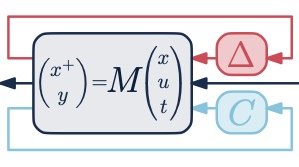
mac
The MAC Team does research in the field of systems and control theory. We develop a mathematical and theoretical basis for dynamical systems control, including modeling, design, analysis and optimization.
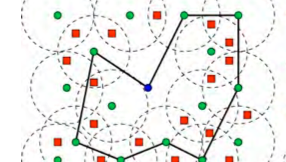
roc
Team ROC works on combinatorial optimisation problems, and on the algorithmic methods to solve them, bridging Operations Research and Artificial Intelligence.
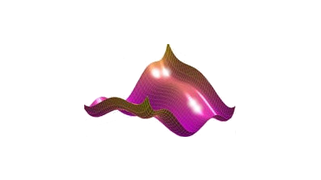
pop
The POP team focuses on solving notoriously difficult and non-convex polynomial optimization problems, arising from several adjacent fields.
Latest publications
2026
Journal articles
Book sections
Other documents
Preprints, Working Papers, ...
2025
Journal articles
Books
Conference papers
Proceedings
Reports
Preprints, Working Papers, ...
Georg Loho, Matthew Maat, Mateusz Skomra. Cycle Patterns and Mean Payoff Games. 2025. ⟨hal-05388191⟩
Victor Magron. Convergence rates for polynomial optimization on set products. 2025. ⟨hal-05086019⟩
Didier Henrion. Maximal entropy in the moment body. 2025. ⟨hal-05092147v2⟩
2024
Journal articles
Books
Book sections
Conference papers
Other documents
Yassine Ariba, Frédéric Gouaisbaut. Chaîne YouTube Capsules Automatique. 2024. ⟨hal-04902796⟩
Proceedings
@softwareversion
Preprints, Working Papers, ...
THESIS / HDR
2025
2024
Louis Goupil, Thèse: Apprentissage machine guidé par des connaissances pour le diagnostic
Olga Iufereva, Thèse: Algorithmes de filtrage avec les observations distribuées par Poisson
2023
Florent Koudohode, Thèse: Commande basée évènement pour quelques équations aux dérivées partielles
Corbinian Schlosser, Thèse: Parcimonie et optimisation convexe pour les systèmes dynamiques
2022
Hao Hu, Thèse: Interpretable Machine Learning Models via Maximum Boolean Satisfiability
Mathieu Bajodek, Thèse: Analyse de stabilité de systèmes linéaires EDO-EDP interconnectés
Tom Portoleau, Thèse: Représentations discrètes pour l’ordonnancement et la planification robustes
2021
Mathias Serieye, Thèse: Contributions à la stabilisation des systèmes à commutation affine
2020
Valentin Bouziat, Thèse: Gestion des aléas dans un système multi-robots
2019
Sabrina Hadjeras, Thèse: Commande hybride pour des convertisseurs de puissance
2018
Idir Hamaz, Thèse: Méthodes d'optimisation robuste pour les problèmes d'ordonnancement cyclique
Mohammed Safi, Thèse: Stabilité de Lyapunov de systèmes couplés impliquant une équation de transport
Pierre Coupechoux, Thèse: Codes et jeux de soustraction et de poursuite dans les graphes
Ulrich Matchi Aïvodji, Thèse: Technologies respectueuses de la vie privée pour le covoiturage
2017
Yun He, Thèse: Problèmes de tournée avec prise en compte explicite de la consommation d'énergie
John William Vásquez Capacho, Thèse: Gestion d’alarmes basée sur des chroniques
Harmonie Leduc, Thèse: Contrôle adaptatif robuste. Application au contrôle d'attitude de satellites
2016
Saïd Zabi, Thèse: Modélisation et commande de l’anesthésie en milieu clinique
Margaux Nattaf, Thèse: Ordonnancement sous contraintes d’énergie
Nadia Chaabane, Thèse: Recherche de flots stables dans des réseaux de transport multi-agents














